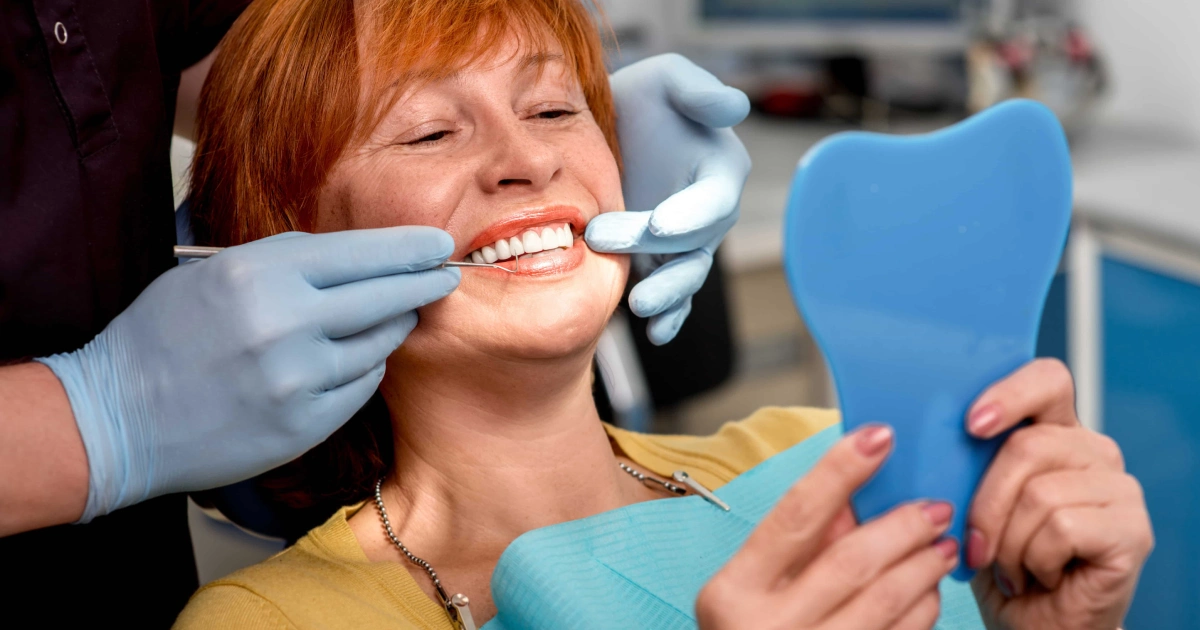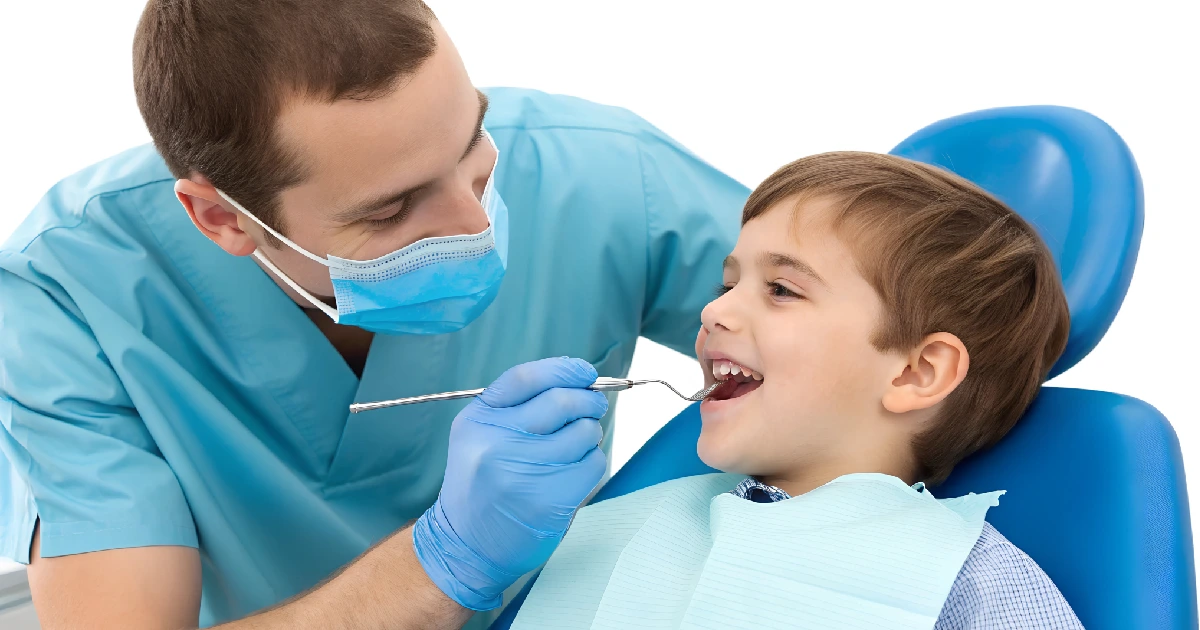If you’ve ever come across tooth loss because of gum infection, tooth decay or traumatic injury, you then can relate to not having teeth. Dentures are one treatment that can help retain your eating and appearance and prevent further damage to your mouth. Different types of dentures are prepared, depending on whether or not the patient has remaining actual teeth, the partial denture will keep your remaining teeth in position, avoiding the future difficulties affected by moving teeth. A dentist will attempt to protect your original teeth if that does not happen you may have to consider a complete denture, with today’s materials and advanced technology, dentists can fashion dentures that fit comfortably and appear natural.
Let’s look into each type of denture in detail
Complete Dentures or Full Dentures
As a clinical technician and expert, complete denture prosthodontics needs the experience of applied fundamental sciences, biomaterials, occlusion, and esthetics delivered with technological perfection.The achievement of a prosthodontics procedure is meant not only on technical perfection but on the dentist’s experience to relate to patients and to follow their needs. Prosthodontics treatment for older people needs an exact analysis of systemic and local problems preceding to the fabrication of the denture. The placement of a removable prosthesis produces profound alterations in the oral tissues. Several situations like mucosal reactions, change in taste, gagging and denture irritation may occur.
Patients should turn for regular follow-up care, should keep the denture out during sleep, clean the denture with a smooth brush and soft soap. The patient should rub their gums with a soft brush. Dentures require to be soaked in a two percent chlorhexidine as a disinfectant. These factors become added benefits in the immunocompromised hosts.
Partial Dentures
Partial dentures are artificial teeth for people who have lost their teeth. Partial dentures are removable and consist of a denture base that almost matches the appearance of your gums and teeth. Producing a partial denture requires approximately five to seven weeks, however, this can differ from one case to another, it also depends on the type of denture and the procedure the dentist or the laboratory specialist uses.
The first step in producing a partial denture is the formation of the teeth, during this stage, a dentist may form the teeth that the partial denture will use for support. In the second step, a dentist will take an exact impression of the upper and lower arches of your mouth. The impressions are then submitted to the dental lab once the perfect fit and appearance are achieved the denture is then sent back to the laboratory for a final fabrication, and each attempt is performed to produce a safe and useful partial denture.
It may require a few more visits and a little amount of time to adapt to your denture. The main point to keep in mind is that adjusting to your partial denture is a process, for a few people, it requires weeks to adapt. The new partial denture could change your eating and speaking habits and it may require a little practice before you get used to it.
Cantilever or Partial Fixed Dentures
Cantilever denture can also be called partial fixed denture and this is a great option for filling the gap when a tooth is missing. The artificial tooth in a cantilever bridge takes the help of adjacent teeth to stay in position. However, unlike conventional bridges, a cantilever bridge connects to the teeth on only one part of the area. A cantilever bridge is custom-made for each individual in a dental lab and you might need to take two to three appointments to complete your bridge treatment.
On your first consultation, the dentist will give anesthesia to avoid the pain, also places a rubber wall and removes any decay present in your mouth, then the doctor will take an impression of your teeth and send it to the dental lab to make a pattern of your mouth, in the meantime, you will get a temporary bridge. On your next visit, the temporary bridge will be replaced with a new bridge.
Cantilever dentures have many benefits, they replace teeth for eating and chewing, help in clear conversation, avoids teeth from moving and often require little tooth preparation than regular dentures.
Immediate Dentures
Immediate dentures are essential in a situation where an extremely broken or severely decayed tooth cannot be restored. Immediate dentures are served on the same day to avoid the negative feelings of being without teeth, also dentures really help the healing of the tissues and acts as a mold for the healing of the tissues and the patient will use that immediate denture for about 3-4 months. In these conditions, dental implants can replace a missing tooth but for some patients, it is financially out of their reach or possibly they’ve medically compromised and can’t have implant treatment or surgery.
The process begins with taking an impression of your mouth, with these impressions dentists make a model of your mouth make the dental prosthesis. When a denture is ready, the dentist will remove the remaining or damaged tooth. Initially, after the new prosthesis, you will feel uncomfortable due to the gum inflammation, there are temporary difficulties with the adaptation of the new dental prosthesis, you will feel your tongue tight and you will have speech difficulties but don’t worry these problems disappear with time at first it will feel weird to eat with the new prosthesis but over time and the practice will achieve total adaptation
Basically, you never have to be without your dentures in a social situation so you’re keeping them in there pretty much all the time but they should be out of your mouth at least a little bit every 24 hours.
Implants Supported Dentures
Implants supported dentures or all on four dental implants are the great choice if all the teeth in your mouth are missing. Based on your health condition, a denture may be placed on implants. With the help of implants, the denture is secured in your mouth, however, it can be removed when necessary. The procedure requires several months and a few appointments.
The treatment begins once you are ready and comfortable. To place the implants in your jawbone the holes are made in your gums. After placing an implant in the jawbone it is allowed for healing and this might last for a few months, during this healing period you may wear a temporary denture. In your next appointment, the permanent denture is fabricated by taking impressions and bite where the accurate model of your mouth is created. Using this model the perfect denture is created which fits the implant.
Implant-supported dentures have several benefits
- It reduces or stops the loss of bone which occurs when teeth are lost.
- The dentures are secured in your mouth.
- You feel more comfortable while eating, chewing and talking to others.
- Dentures are removable, so you can easily clean it.
- Denture looks like natural teeth and brings a confident smile to you.







